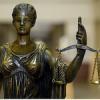Disorderly Conduct is a “catch all” crime. If the actions of the individual are bordering on dangerous, but don’t quite rise to the level of other crimes, law enforcement will probably make an arrest for disorderly conduct. The thought is that it is better to have a reason to stop a situation before it gets more serious than to risk injury to other people or property.
Ice hockey is a form of disorderly conduct in which the score is kept. – Doug Larson
Different jurisdictions define disorderly conduct differently. Some states require intoxication for disorderly conduct to be a crime. Others, such as Florida and Indiana, do not.
To prove the crime of Disorderly Conduct, the state must show you
- engaged in fighting or in tumultuous conduct, or
- made unreasonable noise and continued to do so after being asked to stop, or
- disrupted a lawful assembly of person
And
- the conduct affected the public, or
- caused inconvenience annoyance or alarm and,
- if you live in a state that requires intoxication that would have to be proven as well.
What Exactly Is "Tumultuous Conduct"?
Under the Model Penal Code, “tumultuous conduct” is conduct that is likely to result in serious bodily injury to a person or substantial damage to property. Swinging a golf club at a person and their car while telling them “I am going to kick you’re a**!” is a good example of tumultuous conduct.
Are There Any Defenses to Disorderly Conduct?
Mot disorderly conduct charges result in a small fine or an overnight stay in jail. Because of this not many people fight the charge. It is easier to resolve the case and move on. But if you choose to fight your case there are some defenses that may be available.
Involuntary Actions
In order to be convicted of disorderly conduct, the State must show that you performed the disruptive actions voluntarily or with knowledge. If you can show that you were under duress, or that you suffered from a mental or physical disorder that prevented you from controlling your actions you may have a defense.
Some physical and mental disorders can cause a person to create a disruption. Elderly people in the early stages of dementia may scream or walk into places they used to frequent because they can not recall that they no longer live or do business there. This is very disruptive but is not done on purpose with the intent to annoy or cause problems. Sometimes people who have seizures or brain disorders black out and do things they would not otherwise do
This is a readily recognized defense in almost all jurisdictions. Some states have codified this defense and made it law. An example is Minnesota’s disorderly conduct statute. Section 609.72 of Minnesota’s penal code specifically states that, “A person does not violate [the disorderly conduct law] if the person's disorderly conduct was caused by an epileptic seizure.”
In some states, involuntary intoxication is a defense. This means if you can show that someone drugged you, or that you had adverse reactions to prescribed medications taken as directed, you may not be responsible for your actions. This is not common and is not recognized in all states.
If you were screaming or trying to get attention because you felt you were in danger, this can be grounds for the defense of duress.
For example, if you are a young female being chased by a group of men that have threatened to harm you, and you run into the nearest office and yell “RAPE” as loud as you can in order to protect yourself, and this disrupts a meeting, you could have a duress defense. You did yell and cause a disruption, but it was necessary to prevent harm to your person.
 First Amendment Protections
First Amendment Protections
We, as citizens of these United States, have the right to freely assemble and to protest. If you are arrested during peaceful protests you may have protections under the First Amendment of the Constitution. This protection usually extends to those who have followed the procedures put in place by the local ordinance for staging protests.
Even if you are not protesting, you may still have First Amendment protection. There are certain things you are allowed to say and do in public even if it is not well liked. If you are engaged in one of these activities, then you may have a defense to the charge.
What are the penalties for Disorderly Conduct?
In most cases the penalty for disorderly conduct is minimal. In some cases, an officer will arrest a person for disorderly conduct to get them off of the street for the night and release them the next morning. This is especially true in cases where the police are trying to keep two or more people from starting a fight or some other type of violent situation on the street. But there are other penalties.
-
 Fines – In some jurisdictions the judge will order the offender to pay a fine, similar to a traffic ticket, for a disorderly conduct charge In these jurisdictions the arrest may not even show on a person’s criminal record. In other places, the arrest may show up even if the only penalty was a monetary fine.
Fines – In some jurisdictions the judge will order the offender to pay a fine, similar to a traffic ticket, for a disorderly conduct charge In these jurisdictions the arrest may not even show on a person’s criminal record. In other places, the arrest may show up even if the only penalty was a monetary fine. - Probation – A judge can order a person convicted of disorderly conduct to be placed on probation. Many times if you are placed on probation the State will ask that you perform community service at a non-profit agency in order to atone for the outburst.
- Jail – In extreme cases the judge can order that a person be placed in jail for a period of time. The jail stay can be as little as a day or as much as one year depending on the facts of the case and your state’s law.
In all cases you should consult an attorney before entering a plea. Disorderly conduct is a fairly minor offense but it can affect some types of employment and, at times, college enrollment.




